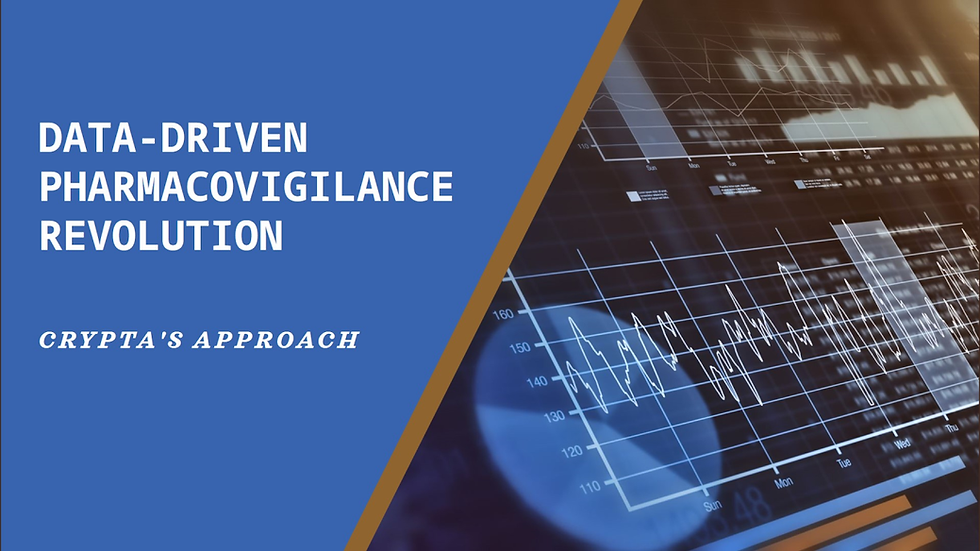
How can we ensure the safety and efficacy of pharmaceuticals in an ever-evolving medical landscape?
This question lies at the heart of pharmacovigilance, the science and activities related to the detection, assessment, understanding, and prevention of adverse effects or any other drug-related problems. As the volume and complexity of data in healthcare continue to grow exponentially, traditional methods of pharmacovigilance face significant challenges in keeping pace with this data deluge. Enter Crypta, a pioneering force in the realm of data-driven pharmacovigilance.
Crypta's approach to pharmacovigilance is revolutionizing the field by harnessing the power of big data, artificial intelligence, and advanced analytics. By leveraging these technologies, Crypta is transforming how adverse drug reactions (ADRs) are monitored, detected, and analyzed, ultimately leading to enhanced patient safety and more informed decision-making within the pharmaceutical industry.
One of Crypta's key contributions to data-driven pharmacovigilance lies in its ability to aggregate and analyze diverse sources of data. Traditional pharmacovigilance relies heavily on spontaneous reporting systems, which are limited by underreporting and biased reporting. Crypta, however, taps into a wide array of data streams, including electronic health records, social media, wearable devices, and even internet search trends. By integrating these disparate sources of data, Crypta provides a comprehensive and real-time view of drug safety profiles, enabling earlier detection of potential adverse events.
Moreover, Crypta employs advanced analytics and machine learning algorithms to sift through vast amounts of data and identify meaningful patterns and signals. These algorithms can detect subtle correlations between drug exposure and adverse outcomes that might go unnoticed by human analysts. By automating much of the data analysis process, Crypta accelerates the identification of safety concerns and allows pharmacovigilance professionals to focus their efforts on interpretation and action rather than manual data mining.
One of the most significant advantages of Crypta's data-driven approach is its proactive nature. Traditional pharmacovigilance often relies on reactive measures, waiting for adverse events to be reported before taking action. Crypta, however, enables proactive risk identification by continuously monitoring and analyzing data in real-time. This proactive stance allows for early intervention and mitigation strategies, potentially preventing harm to patients and reducing the financial and reputational costs to pharmaceutical companies.
Furthermore, Crypta's data-driven pharmacovigilance approach fosters collaboration and information sharing across stakeholders in the healthcare ecosystem. By providing a platform for the aggregation and analysis of anonymized data from diverse sources, Crypta facilitates knowledge exchange between regulatory agencies, pharmaceutical companies, healthcare providers, and patients. This collaborative approach strengthens the overall pharmacovigilance infrastructure and promotes transparency and trust within the healthcare community.
Conclusion
In conclusion, Crypta's contribution to data-driven pharmacovigilance represents a paradigm shift in how we monitor and ensure the safety of pharmaceuticals. By harnessing the power of big data and artificial intelligence, Crypta is revolutionizing traditional pharmacovigilance practices, enabling earlier detection of adverse events, and fostering proactive risk management strategies. As the healthcare landscape continues to evolve, Crypta stands at the forefront, driving innovation and enhancing patient safety through its transformative approach to pharmacovigilance.

Comments